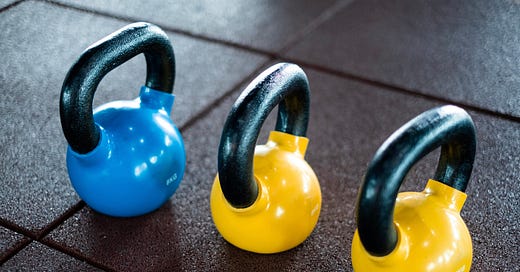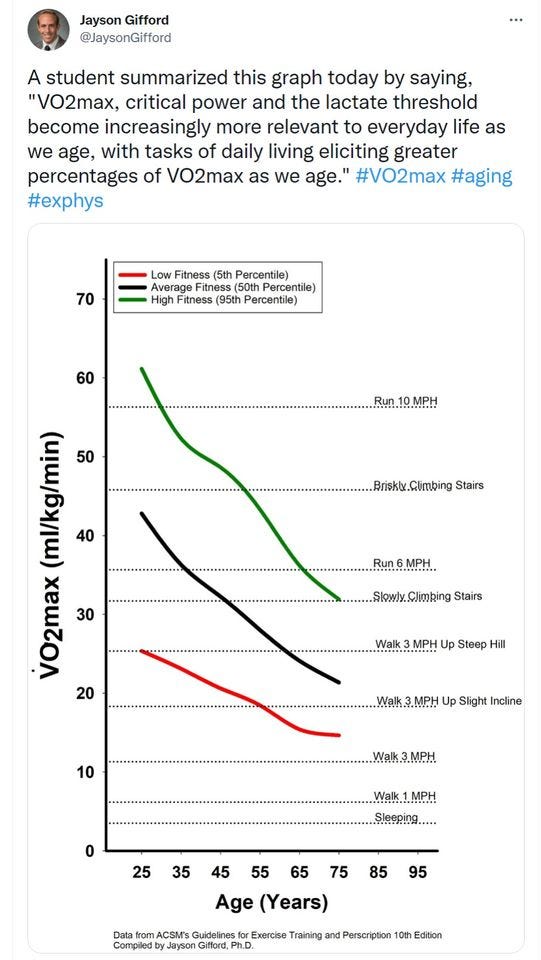Introduction
Welcome to The ContraMind Code.
The ContraMind Code provides you with a system of principles, signals, and ideas to aid you in your pursuit of excellence.
The Newsletter shares the source code, through quick snapshots, for a systems thinking approach to be the best in what you do.
The Code helps you reboot and reimagine your thinking by learning from the best and enables you to draw a blueprint on what it takes to get extraordinary things done.
Take a journey to www.contraminds.com. Listen and watch some great minds talking to us about their journey of discovery of what went into making them craftsmen of their profession to drive peak performance.
Impact of Habitual Running on Cardiovascular Health and Longevity
by Range Widely
This is a lovely read which is based on a conversation from the newsletter Range Widely, where David Epstein, author of the #1 New York Times bestseller Range: Why Generalists Triumph in a Specialized World and of the New York Times bestseller The Sports Gene and Alex Hutchinson, author of the book Endure: Mind, Body, and the Curiously Elastic Limits of Human Performance.
Here are some key takeaways:
Alex debunks many research and conference paper findings that make the headlines on Social Media. Alex says name the health condition, and running makes you less likely to get it: not just the obvious ones like heart disease, but also things like glaucoma, Alzheimer’s, brain cancer, etc.
The fitter you are, the longer you’re expected to live. There’s no threshold where being a little bit fitter becomes bad. Here’s an excellent image capture that says it all. (Our addition: Your Apple Watch can track this)
According to Alex, the general conclusion is that habitual runners are no more likely to develop knee osteoarthritis than comparable non-runners and may even be less likely to.
Which should come first, cardio or weights? You should do your exercises in whatever order fits best in your life and brings the most happiness. The extra per cent or two you gain by optimising workout order is swamped by what you lose if you can’t stick to a consistent routine.
Read here
Digital Disruption Through Decoupling
by Thales Teixeira
Prof. Thales Teixeira is the Co-founder of digital disruption consultancy Decoupling.co, and was a former Associate Professor at Harvard Business School. In this podcast, Thales talks about decoupling within the customer value chain and how it leads to digital disruption. Here are some of the areas that he covers in this conversation:
Disruption & the genesis of Decoupling
Differences between Customer Value Chain and Customer Journey
How certain Customer Value Chain niches are creating new business models
Insight into how Uber, Airbnb & Etsy made their first 1000 customers
How to define Business Models through the Customer Value Chain
Listen to the entire episode on:
Talent and IQ get the best results only if you have Grit.
by Angela Duckworth
Angela Duckworth is the Co-founder, Chief scientist, and Board member of Character Lab, a nonprofit whose mission is to advance scientific insights that help children thrive.
In her book, Grit - The Power of Passion and Perseverance, Angela writes about the importance of Grit and why this is a critical ingredient for succeeding in the real world.
Top three takeaways:
Two traits that predict achievement: are grit and self-control.
Even if talent exists (defining talent as the rate at which a person learns with effort), she argues that "a focus on talent distracts us from something that is at least as important, and that is effort".
Also, the importance to focus on cultivating other character strengths (e.g., humility, social intelligence, kindness, etc.) for success in life.
What’s Common Between Exercising and Talent?
As we read through the conversations between David Epstein and Alex Hutchison and watching Angela Duckworth’s thoughts on grit, one thing that stood out, which was common to both, was the importance of sticking to a routine and putting effort into harnessing the talent that you have.
Also, the importance of ‘being happy’ with any exercise regimen you want to take up. So, is the case with ‘any work’ you do. It does not matter but what is most important is the nuanced understanding of routine - something you must find joy in getting up every day and doing it over and over again. So, is the case to realise your potential with the talent you have.
Why is routine and effort so important? Why is routine and effort so intertwined? Routine is the act of just doing what you have promised yourself every day, come what may. What routine helps you build is a sense of self-control. Often, you will feel lazy or want to procrastinate, but routine forces you to follow a rhythm every day. Over time this reduces a sense of anxiety, builds an ability to handle stress levels better and sometimes makes things look boring as you don’t take too many decisions daily on a set of pre-agreed tasks you want to do. This will slowly trickle into many things you do in your professional life.
But, routine alone is not important. Effort is ‘the physical or mental strength or energy that you need to do something; something that takes a lot of energy’. When you put in that extra effort every day, you add a bit of energy to your mental tenacity and start to build a lot of grit in yourself. For example, if you run 5 kms, you tend to run an additional few kms over time as you put in the extra effort. At work, your capacity to do more work increases as you combine routine and effort. You will realise you can take up additional things that you want to do but never imagined you could. But, you will have the mental energy to do it. Showing up consistently on time at work, building a consistent routine of taking meetings or meeting customers, finding a routine for mentoring colleagues or getting mentored by senior folks whom you respect, volunteering to do something that your work does not give you exposure or an opportunity right now but building a routine and effort to do these beyond your work, setting aside a routine to learn and putting an effort to learn to improve your professional capacity and competency in anything that you do, will start to show over time. Finally, you should apply routine and effort to things that make you happy.
Routine and Effort are the secret sauce to achievement.









